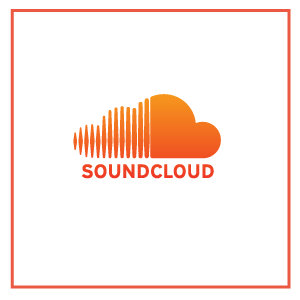Episode 38: Website Maintenance Brisbane
Starting a New Website? - Learn more about Web Design Brisbane here
ALSO LISTEN ON
READ THE TRANSCRIPT OF EPISODE 38 BELOW
[00:00:00] Saul: Hi everybody, and welcome to the Web Design Brisbane podcast. This is episode number 38. Today's episode is entitled Website Maintenance Brisbane. My name is Saul Edmonds, and as usual, I'm joined by the lovely Gillian Smith.
[00:00:13] Gillian: Good morning, Saul. It looks like it might rain again.
[00:00:15] Saul: Oh, yes, again.
[00:00:16] Gillian: We had a very wet week.
[00:00:18] Saul: Yes, we have. We are the co-founders and creative directors of Roundhouse, the creative agency, a local business with a passion for helping our clients grow. Over to you, Gill.
[00:00:27] Gillian: Okay, well, thanks Saul. Well, today, we'll be talking about website maintenance. We're here to help you learn more about website maintenance, website maintenance services, why you need them and when to use them. Now our goal is to help small business owners’ start-ups and entrepreneurs in the city of Brisbane, Australia, take their opportunities to the next level with website design. If you're from another location or city, welcome. Thanks for joining us today, and we hope we can help you grow your business in the online space.
[00:00:57] Saul: What are today's topics, Gill?
[00:00:59] Gillian: Okay, today, it's all about website maintenance. And maintenance, of course, is the long-term health of your website. Does your business website need a health check? Well, to find out, let's get started. Okay, Saul, first off, what is website maintenance?
[00:01:15] Saul: Yeah, good question. When people say, what do you actually provide in terms of website maintenance, that means a range of different things. So once your website is actually up and running for the majority of people, there's not a lot really to maintain. Except depending on the content management system that you use. One very simple thing is that something like WordPress will have range of different plugins and things that you use to add extra functionality to, and they're made by third party developers Now sometimes have updates that are automatically made by those people that made plugin, and they just need to be updated. However, the catch there is that on occasion, not always, sometimes that an update can have an undesired effect on something that was built in the website, through no fault of the people that made the website, but just that the people who created the plugin, don't know what everyone else's plugins are Darian sons, sometimes there are conflicts. So having website maintenance, part of that is the it being to identify any problems that might arise from things like that will not do the updates, or to advise the client on that also regular keeping a monthly or even weekly, in some instances, copy of your website?
[00:03:05] Gillian: Okay, well, so let's just learn more about what a website maintenance checklist could look like. First of all, are there any daily maintenance tasks?
[00:03:15] Saul: Okay, so it could be website, uptime, monitoring of your website, just to make sure that, especially if you've got a website that's got a lot of things happening on it, it's got a lot of activity, a lot of different users, it might require that sort of service, customer feedback as well, especially if there's a lot of incoming leads and information that a client wants somebody else to actually handle. handle that for them.
[00:03:50] Gillian: And what are some common monthly website maintenance tasks?
[00:03:55] Saul: Okay, so just a little list here, this could include things, malware scans, as well, just to make sure, especially in things like WordPress and open source platforms, they are prime, like any online solution is to things like malware, or things that are untoward, the need to be scanned for. Like I was saying before, updates to the CMS Well, actually, to the extensions and the plugins, but also, the WordPress software itself occasionally gets updates. And a full copy as well, like we were talking about of your site that can be monthly is usually good quality assurance through Google Webmaster Tools as well. So sometimes Google, in their solutions that you plug into your side will have things that they might recommend or update that you should tell your client about, or if your client knows about it, to be able to tell them put those things even main as well. And also just a link scan scanning to fix any broken third-party links to make sure that don't turn into for errors, which is a page that says if somebody clicks on it, that the page isn't there anymore. If there's things like that, that arise every now and again.
[00:05:27] Gillian: Okay, I've always looked at some daily maintenance tasks, and monthly, but what about an equivalent quarterly maintenance tassel?
[00:05:34] Saul: Okay, so to have a full, full website, security order, is generally like if you're looking after your car, the things that you don't necessarily have to do to make sure your car keeps running. But there's still good to do every quarter. Yeah, just to make sure that things are, how they should be. website performance optimization, such as the website loading across multiple devices, and speed testing. Because sometimes things do change, especially if a client people have been uploading more content and doing things to the side over time all the. It's good to keep a handle on if that's had an impact on the website, every now and then.
[00:06:30] Gillian: Okay, so we looked at the daily tasks, the monthly tasks and the quarterly tasks, or what about yearly website maintenance tasks? What do you recommend here?
[00:06:38] Saul: Okay, so that also falls under the category of renewing your domain names so that can be yearly, or by yearly, depending on how often you have registered them so keep an eye on when those domain names are actually do as well, and making sure that they're if you're managing them to renew them, for the client, so they always have then, and just really simple things like keeping the in the footer of every site, there's usually a little copyright statement. If you don't have one, you should have one. But just to keep that up to date, as the years move on.
[00:07:19] Gillian: Okay, well, our next Saul, just give us a give us some overview on your thoughts of what does an ongoing website maintenance solution offer, as opposed to me fixing the problem when it all goes wrong?
[00:07:33] Saul: Okay, so some, there's a lot of those things that you can avoid, especially relating to security, malware, and sites being hacked, that if you put certain things in place, you can avoid those things altogether and was that does sometimes seem better that you don't necessarily need to do that and you'll save on costs, you may have a lot more costs further down the track, if then you have to be reactive to that, and obviously, like, those things may never happen to you but certainly sites are more prone to those sorts of things than ever.
[00:08:18] Gillian?: So is it cheaper to maintain a website regularly, or deal with the consequences of a compromised website, in effect?
[00:08:25] Saul: I think overall, it's actually more affordable to have that maintenance, because that can also generally flow through to the idea that you've got someone looking after and is actually helping you to maintain it.
[00:08:39] Gillian: Okay, Saul. We'll just, let's just talk about just from your experience, when things do go wrong, and what sort of things can happen with websites when the security is compromised and other things like that?
[00:08:49] Saul: Yeah, well, it's the sort that comes in many forms, people can insert malware that sends information from via your website, to other sources, it can use your contact forms, your site can be hacked, it can be changed, and all sorts of things that you may not even be aware are actually happening until somebody else tells you about it. But let's keep it positive. Let's keep it positive, those things, those things may happen and even if they do happen, it's usually always fixable. If you've got a plan in place to legislator, if you've got a plan in place, because it's not true to say those things would never happen to your side because things just aren't generally that secure, but you can make things as largely preventable, as you can, by having some sort of plan implies, at least to what you will do if that happens. So with that in mind, guys, thank you so much for listening. That's actually it for today. Before we go, please don't forget to rate review and subscribe to this podcast. We'd love to hear your feedback. Also, if you'd like to read the transcript of this episode, please visit our website at roundhouse.cc/web-design. We're on a journey to help local Brisbane businesses grow their opportunities online and exceed their goals. Thanks for listening and we'll see you tomorrow. Bye. Bye, guys.








